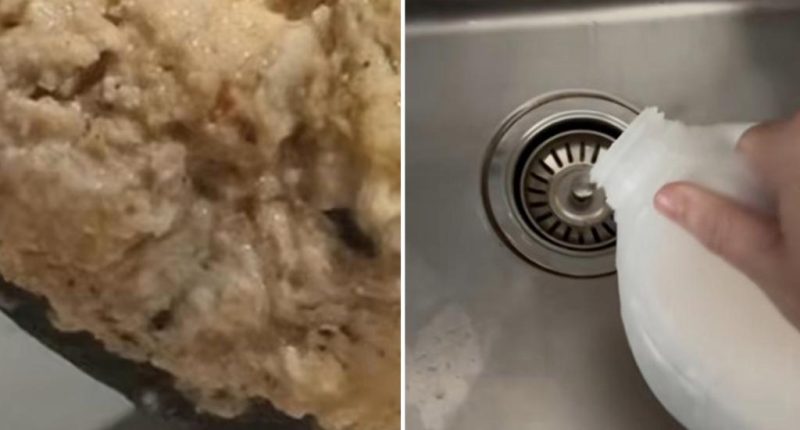Share this @internewscast.com

There are a few things we all know we’re not supposed to pour down the sink, or flush down the toilet.
Think, oil and wet wipes specifically.
Since it’s fairly common knowledge, the amount we do it – if at all — is fairly limited.
But, we just found out there’s another thing you’re not supposed to pour down the sink =- and chances are you do it every day.
“PSA incoming!”
Sydney Water has taken to TikTok to share a funny clip, exposing some of the things you shouldn’t pour down the sink — but probably do.
“PSA incoming,” they wrote.
“No oil down the sink.”
And yes, we knew that. But then it gets a little weird.
“And don’t pour milk,” it said.
The video also advised against disposing of coffee grounds by pouring them down the sink. However, I’m still fixated on the milk issue. Is it wrong to pour the remnants of every milk bottle down the sink?
“WHERE DOES THE MILK GO”
And, it seemed commenters were on the same page, with just about everyone questioning their entire lives.
“WHERE DOES THE MILK GO,” said one commenter.
“Then what am I meant to do with half a jug of milk?” another asked.
“Milk as well? Whoops, how do I get rid of spoiled milk? Lol,” a third agreed.
“Wait, why not milk???” another person asked.
“Seriously question though, why no milk?” said another.
Here’s the situation
In a conversation with Kidspot, Ben Armstrong, Sydney Water’s Principal Manager Environment, confirmed that these commenters represent the majority of Australians, as most people are unaware that pouring milk down the sink is discouraged.
“Our latest data shows that 70 per cent of Sydneysiders think it is ok to pour leftover milk down the sink,” he said.
Instead, only water, detergent and soap are allowed, otherwise your pipes are at risk of blockages.
“Other items, such as milk, oil and grease can solidify in pipes and cause blockages, leading to expensive repairs,” he said.
“When fats, oil, and grease come into contact with the cool water in your wastewater pipes, they solidify. These substances then combine with other waste, such as wet wipes, to create a hard blockage known as a ‘fatberg’.”
“These blockages can cause overflows which can be a health and environmental nightmare, with wastewater backing up and overflowing into homes, backyards and local waterways.”
As for what you’re supposed to do with your milk instead, Ben said it might be better off in your garden.
“We recommend disposing of milk by diluting it with tap water and using it to water your plants – it’s a great source of nutrients for your garden,” he said.

















